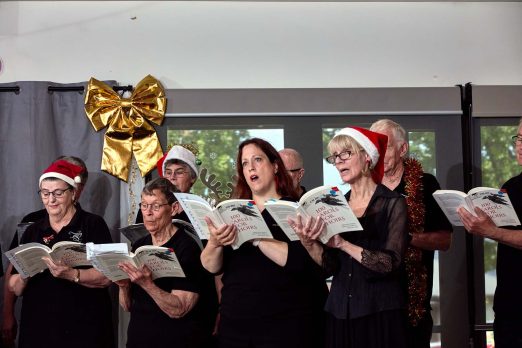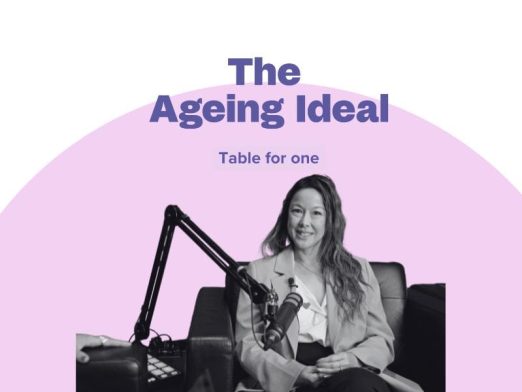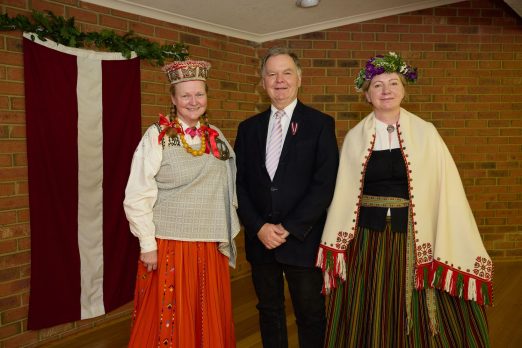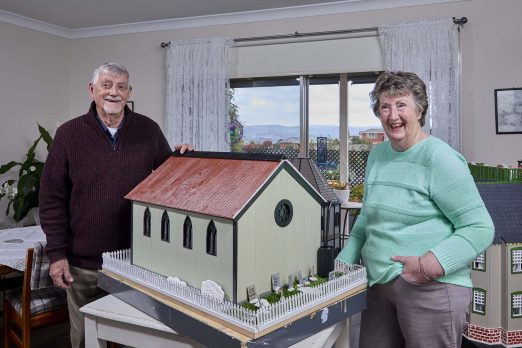News
Extending kind and compassionate care
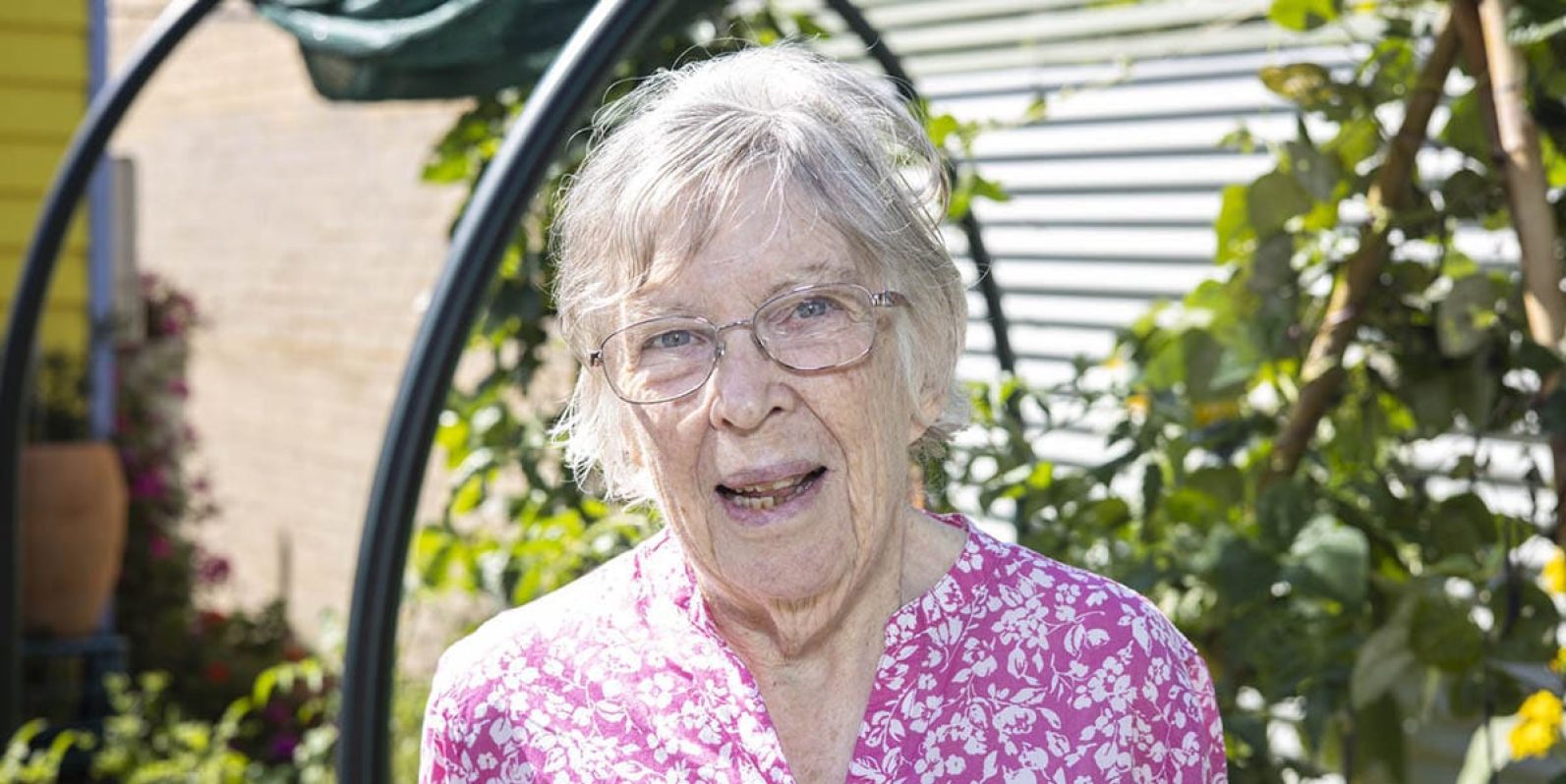
Organisational
Experiencing the end stages of life in the way people choose is an important expression of how Uniting AgeWell puts our customers –residents, clients and their families – at the centre of everything we do.
National Palliative Care Week aims to increase the understanding of the many benefits of palliative care and so it is an appropriate time to share the important and meaningful work that is being continually enhanced to make the end stages of life as comfortable and pain-free as possible.
And it is also important to hear from those who have gone before us, to demonstrate to others the options that are available today. Like in the case of Brenda, pictured, who lived alone and moved to Uniting AgeWell Hawthorn Community for palliative care after she was diagnosed with terminal cancer. She spent the last few months of her life with her “new family”, surrounded by care and comfort. And she asked, before she died last year, that we continue to tell her story, to give others alternative options.
Uniting AgeWell continues to build upon its extensive experience including furthering existing programs and adding new initiatives.
Namaste
Namaste Care is about honouring the spirit within and focuses on positive, heartfelt care for the palliative person, touching on all the six senses. It is a holistic approach of care which supports each person’s quality of life.
Kerry Whitlock, Uniting AgeWell’s Palliative Care Specialist says the Namaste Care Program is still being piloted in Tasmania at Uniting AgeWell Kings Meadows Community Aldersgate and will be extended to another two of the organisation’s Tasmanian facilities – Newnham Community Aldersgate Village and Latrobe Community Strathdevon.
A small working group is creating a Uniting AgeWell Namaste Manual. The Moderate to Advanced Dementia Specific Palliative program helps engage a person’s senses and can be used across programs in the residential, home care or community settings.
One seamless language
Uniting AgeWell will be trialling the Palliative Aged Care Outcomes Program (PACOP) in northern Tasmania (Kings Meadows Community). Palliative Care Tasmania has previously awarded Aldersgate Kings Meadows for their palliative care initiatives and Kings Meadows continues to be a leader for initiatives in our palliative care delivery.
During the end stages of life, people can require transition between the care of various providers including hospitals, residential care and more.
Kerry says as part of PACOP, the National Palliative Care Assessment tools will be aligned, covering those used in aged care with primary health, acute care and palliative specialist care. She is quick to stress the level of care remains as it is now, however the assessments, which need to be done by staff, will be standardised and will incorporate national palliative care benchmarking. This means, for example, if a resident transfers from the facility to a hospital, the palliative assessments and language will be the same.
The overarching goal is to provide a greater sense of ease for the person by streamlining the transitions that may be required.
“And we are looking to explore extending this to home care clients as well,” Kerry says.
Listening to those who can’t speak
We’re trialling a new digital application of our already established pain management system. This app will provide real time insights to the patterns of the ebb and flow of pain that people experience to pre-empt peaks and adjust management faster and more appropriately.
The app will provide more robust charting to treat residents with dementia or others who may have a limited ability to communicate their pain levels, and is soon be trialled at some of Uniting AgeWell’s residential sites in Victoria and Tasmania.
The Pacslac App is an app version of the paper-based system the Pain Assessment Checklist for Seniors with a Limited Ability to Communicate (PACSLAC-II).
The Pacslac system is where a carer and the nurse in charge do in-depth observational checks of the non-verbal resident three times a day. They look at the full range of facial, behavioural and body language, and write down what they observe. They then rate the resident’s pain levels and work out the treatment for the pain: medication, therapy and so forth, to reflect not only how much medication the resident needs but what time of the day or night they need it the most. The aim is to reduce the resident’s pain score.
“Obviously at all times, including end-stages of life, controlling pain is vital – and this app will certainly allow a greater ability to chart pain levels and medication, and track previous scores allowing for improved pain outcomes” says Kerry.
She says this app can also be used in home care settings for clients needing palliative care.
No one has to die alone
Several residential facilities are trialling the No One Dies Alone (NODA) pilot program which will see volunteers train to become companions, keeping a bedside vigil and providing comfort to the dying person, in addition to the vital nursing care provided during this time. At our Noble Park and Hawthorn communities this initiative is led by some of the residents who want to support their community.
Supported by Uniting AgeWell’s local Palliative Comfort Care Committees, Kerry says the intention is to roll it out to all Uniting AgeWell’s residential aged care facilities, using the learnings from this pilot program.
Kerry says some older residents don’t have families, some families live far away or are unable to maintain an-around-the clock bedside vigil and need to take a few hours off. Having volunteer companions during this time can make a real difference to both the person and their families.
Guard of honour
The Guard of Honour is proving a huge comfort to our residents, their families and staff across both Victoria and Tasmania.
The initiative sees a resident who has passed away given a poignant and often rousing farewell by residents and staff, as they leave the facility. The plan was first mooted by residents who wanted to leave the facility the same way they came in – through the front door. Palliative Care Tasmania has previously recognised and awarded Ningana for their initiative in this area.
Residents say it makes them feel cherished, and gives them a feeling of closure to be able to say farewell to one of their friends. And families appreciate it too.
